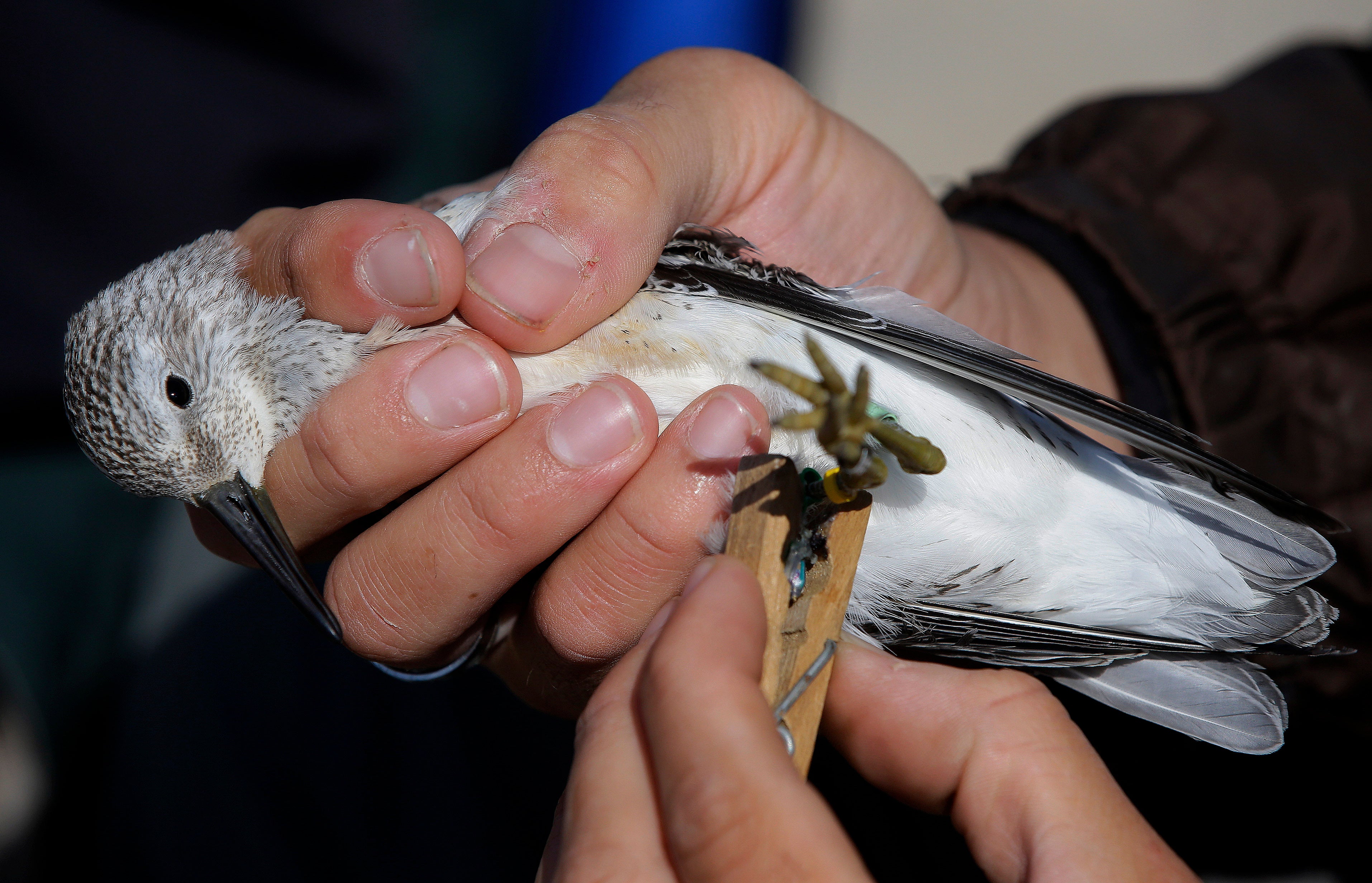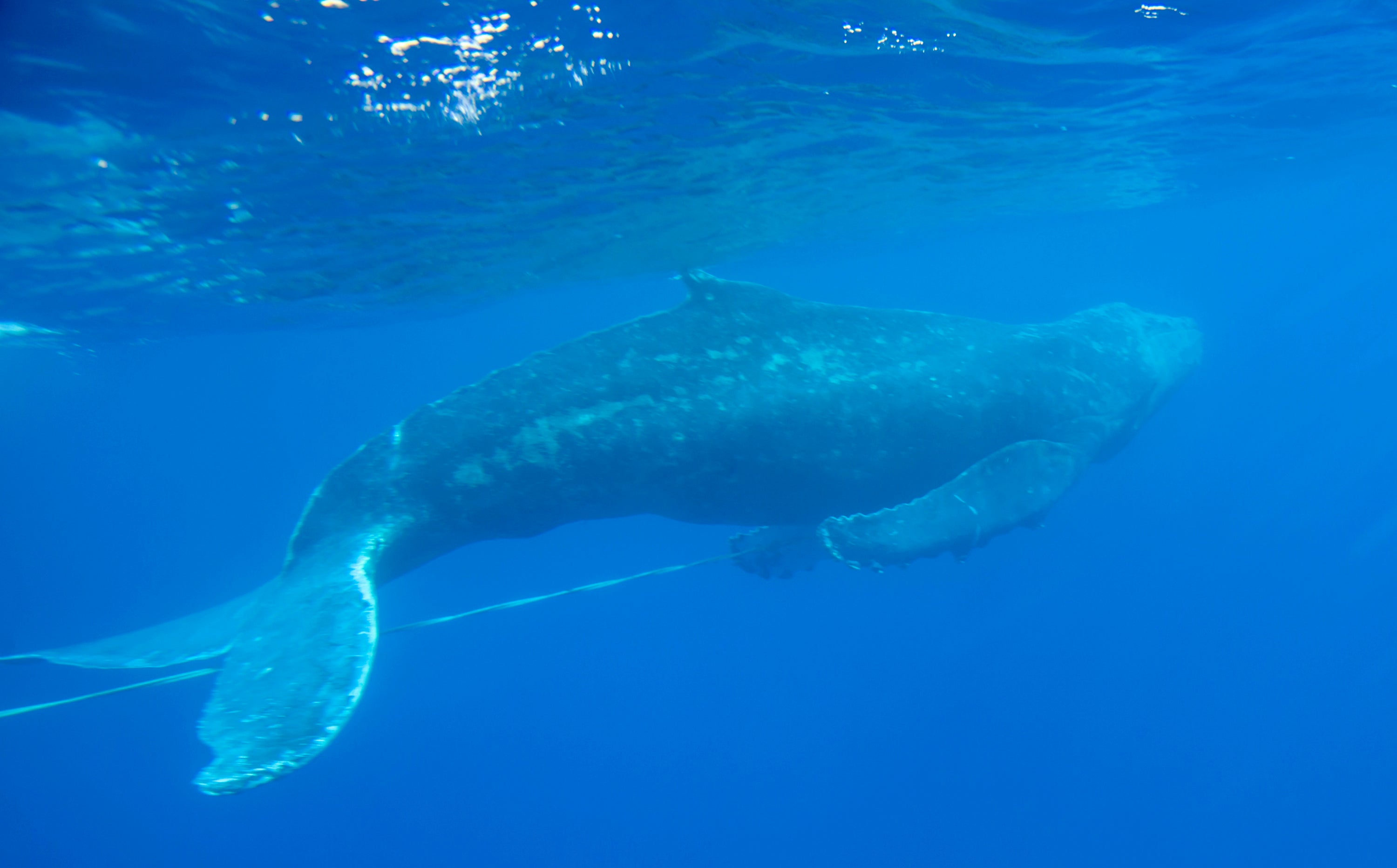Nearly half of the world’s migratory species are in decline, report warns

Nearly half of the world's migratory species are in decline, according to a new United Nations report.
Many songbirds, sea turtles, whales, sharks and other migratory animals move to different environments with changing seasons and are imperiled by habitat loss, illegal hunting and fishing, pollution and climate change.
About 44% of migratory species worldwide are declining in population, the report found. More than a fifth of the nearly 1,200 species monitored by the U.N. are threatened with extinction.
“These are species that move around the globe. They move to feed and breed and also need stopover sites along the way,” said Kelly Malsch, lead author of the report released at a U.N. wildlife conference in Samarkand, Uzbekistan.
Habitat loss or other threats at any point in their journey can lead to dwindling populations.
“Migration is essential for some species. If you cut the migration, you’re going to kill the species,” said Duke University ecologist Stuart Pimm, who was not involved in the report.

The report relied on existing data, including information from the International Union for Conservation of Nature's Red List, which tracks whether a species is endangered.
Participants of the U.N. meeting plan to evaluate proposals for conservation measures and also whether to formally list several new species of concern.
“One country alone cannot save any of these species,” said Susan Lieberman, vice president for international policy at the nonprofit Wildlife Conservation Society.
At the meeting, eight governments from South America are expected to jointly propose adding two species of declining Amazon catfish to the U.N. treaty's list of migratory species of concern, she said.
The Amazon River basin is world’s largest freshwater system. “If the Amazon is intact, the catfish will thrive — it's about protecting the habitat,” Lieberman said.
In 2022, governments pledged to protect 30% of the planet's land and water resources for conservation at the U.N. Biodiversity Conference in Montreal, Canada.
Inger Andersen, UNEP executive director, said: “Today’s report clearly shows us that unsustainable human activities are jeopardising the future of migratory species – creatures who not only act as indicators of environmental change but play an integral role in maintaining the function and resilience of our planet’s complex ecosystems.
“The global community has an opportunity to translate this latest science of the pressures facing migratory species into concrete conservation action.
“Given the precarious situation of many of these animals, we cannot afford to delay, and must work together to make the recommendations a reality.”

The report, which is being launched at a meeting of countries which are parties to the treaty in Samarkand, Uzbekistan, makes a number of recommendations to help declining migratory species.
They include taking action to protect areas that are vital for migratory species as breeding, feeding and stopover sites, as more than half of the areas identified globally as important for migrating wildlife are not protected.
The report also calls for more efforts to tackle illegal and unsustainable hunting and fishing of migratory species, and reduce bycatch – where wildlife is caught accidentally, for example turtles captured in fishing nets.
Bookmark popover
Removed from bookmarks